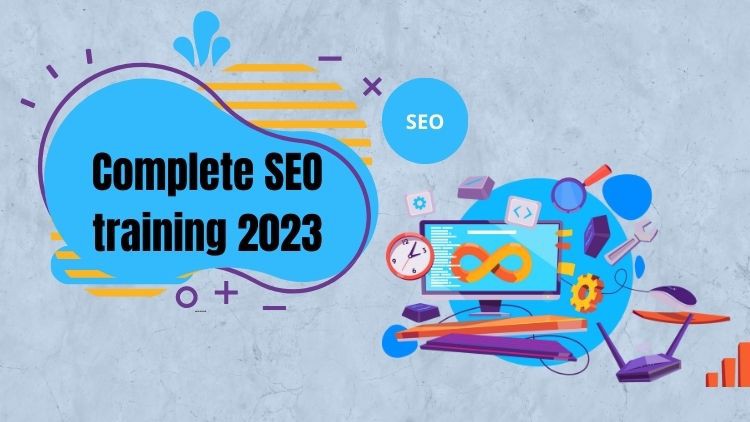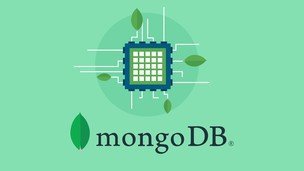The Complete SEO Training 2023 + SEO For The WordPress Website course is designed to provide learners with comprehensive knowledge and practical skills in search engine optimization (SEO) for websites, with a specific focus on WordPress. This project-based course follows a backwards design approach, starting with the desired outcome of becoming proficient in SEO and working backward to create engaging modules and activities that guide learners toward this goal.
Through a combination of theoretical lessons, real-world examples, hands-on activities, and project-based learning, students will gain a deep understanding of SEO principles and techniques, and learn how to apply them effectively to WordPress websites. By the end of the course, learners will have the ability to optimize websites for improved search engine rankings, drive organic traffic, and increase online visibility.
Course Outline:
Module 1: Introduction to SEO and WordPress
- Lesson 1: Understanding SEO Basics
- Learning Objectives:
- Define SEO and its importance for websites.
- Identify key components of SEO, including keywords, meta tags, and backlinks.
- Understand how search engines work and rank websites.
- Real-World Examples:
- Showcase websites with good and poor SEO practices.
- Highlight successful SEO strategies used by well-known companies.
- Activities:
- Research and analyze keywords related to a specific industry or topic.
- Optimize a sample webpage by incorporating appropriate meta tags and keywords.
- Discussion Questions:
- Why is SEO important for a website’s visibility and success?
- Can you think of any successful websites that have implemented effective SEO strategies? What makes them successful?
- Ways to Expand Learning:
- Research and compare different SEO tools and plugins available for WordPress.
- Conduct a case study of a website that has achieved significant traffic growth through SEO.
- Learning Objectives:
Module 2: Keyword Research and Analysis
- Lesson 2: Conducting Keyword Research
- Learning Objectives:
- Understand the importance of keyword research in SEO.
- Learn how to identify relevant keywords using various tools.
- Analyze keyword competition and search volume.
- Real-World Examples:
- Demonstrate the process of keyword research using popular SEO tools.
- Showcase examples of websites that have effectively used keyword research to improve their rankings.
- Activities:
- Conduct keyword research for a chosen industry or topic.
- Analyze keyword competition and search volume to determine the best keywords to target.
- Discussion Questions:
- What are some effective strategies for finding long-tail keywords?
- How can keyword research help improve the quality and relevance of website content?
- Ways to Expand Learning:
- Explore different techniques for optimizing content based on keyword research.
- Conduct a comparative analysis of keyword research tools and their features.
- Learning Objectives:
- Module 3: On-Page SEO Optimization (continued)
- Lesson 3: Optimizing Content and Metadata (continued)
- Learning Objectives:
- Learn how to optimize website content for better search engine rankings.
- Understand the importance of meta tags, headings, and image optimization.
- Implement best practices for on-page SEO optimization.
- Real-World Examples:
- Showcase examples of well-optimized webpages, focusing on content and metadata.
- Analyze the impact of optimized headings and meta tags on search engine results.
- Activities:
- Optimize a sample webpage by incorporating relevant keywords, headings, and meta tags.
- Analyze the impact of image optimization on page loading speed and SEO.
- Discussion Questions:
- How can well-optimized headings and meta tags contribute to a website’s SEO?
- What are some techniques for optimizing images for both user experience and SEO?
- Ways to Expand Learning:
- Research and experiment with advanced on-page SEO techniques, such as schema markup and structured data.
- Analyze the impact of different content formatting options (e.g., bullet points, subheadings) on SEO.
- Learning Objectives:
- Lesson 3: Optimizing Content and Metadata (continued)
Who this course is for:
- Anyone who wants to learn about SEO
- SEO Beginners/ Experts
- Entrepreneurs, bloggers and website owners who want to grow through SEO
- If you’re a Content Creator, looking to increase your subscribe base and struggling to get new visitors from organic search
- Website owners, who want to get to rank #1 in Google with SEO 2022 Training for WordPress
Course Features
- Lecture 1
- Quiz 0
- Duration 10 weeks
- Skill level All levels
- Language English
- Students 0
- Assessments Yes





